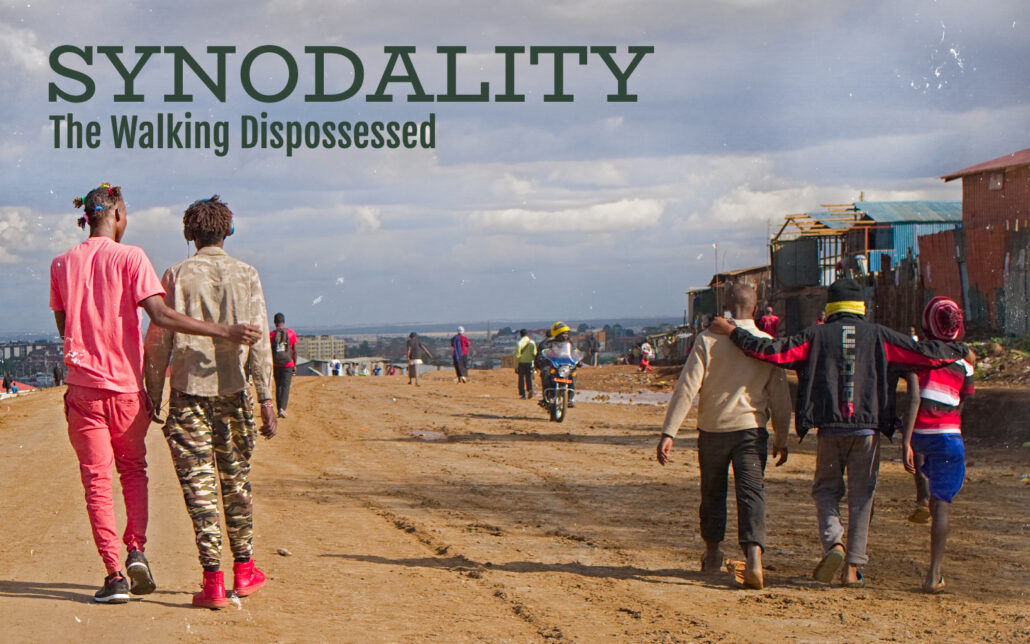See. Do. Be. Free.

Issue 006
An Open Letter to the Community around this year's theme.
Greetings,
Each year we pick a theme to help guide our work of freeing leaders to love and serve. Our theme this year is synodality. It means “walking together.”
In his book After Whiteness, Willie James Jennings suggests that the goal of theological formation is “belonging.” He adds “…and not just any kind of belonging, but a profoundly creaturely belonging that performs the returning of the creature to the creator…”
I love this.
It aligns with our mission at Street Psalms. We help free people from all walks of life to create cities of peace for all people, where everyone belongs, especially the most vulnerable.
As we enter the second week of this year’s Lenten journey I think it’s worth pausing to reflect on the shadow side of this work. As we begin the annual trek to the Resurrection by way of the Cross we want to reflect on what some have called the “pathology of belonging.” It’s a provocative term.
Why do we pathologize something so fundamental to human flourishing?
The pathology I am thinking of is not unique to this or that group. It is found in all social groups. We can see it being played out across the political, economic, and religious spectrum. None of us are immune. Its pull is so strong that it might be described as a form of idolatry.
We are created in and for community, which is a good thing, but our sense of belonging to our tribe easily morphs into a destructive force that has us abandoning our humanity.
Jesus would have called this demonic. We are possessed by our own tribes. It’s hard to identify this demon, not because it’s not real, but because most of our belonging systems provide safe haven for this demon to take up residence without being noticed.
The pathological part is not our desire to belong. That is common to all humans. The pathological part has to do with the way we belong. Belonging gives us our sense of identity and tells us who we are. That’s what belonging systems do. They tell us who we are. But if our belonging is pathological, so too are our identities, and this distorts our view of reality. As Anais Nin said, “We don’t see things as they are. We see things as we are.”
Jesus shows us another way.
He reveals that it’s not enough for us to belong to this or that group, no matter how good that group is. The patterns of desire in these social constructs are ultimately doomed because of the way it puts us into rivalry with each other. What’s needed are not better systems of belonging, but for humans to draw our identity from the One who is in rivalry with nothing. This is how we can occupy our systems of belonging without being ruled or run by them.
Sadly, most of us are taught only one form of belonging – the kind that is “over and against” the other. Such belonging is based on rivalry. This form of belonging shows up in all social constructs, especially faith communities, which clothe their pathology in righteousness.
And so, we walk together on the Lenten journey to find another way to belong. We begin by remembering our creatureliness. On Ash Wednesday, we received the sign of the cross traced on our forehead. “From dust we came and to dust we shall return.” We remembered our vulnerable flesh, and what we are capable of doing to other human flesh. This opens us up to a more human form of belonging – one that honors the power of vulnerability – one that is strong enough to be perceived as weak.
Jesus shows us that it’s possible to receive our identity as God’s beloved and be freed to embody a form of belonging that does not return violence for violence.
James Alison calls this “weak belonging” and suggests that this way of walking with Jesus is “the way of dispossession.” He suggests that our identity in Christ dispossesses us from the idols that tell us we must power up to survive.
Jesus offers a kind of belonging that feels weaker and more vulnerable than most of us have the stomach for, but that’s only because our identities are still so heavily derived from the idols who tell us who we are. In Christ, we are all being dispossessed of our pathological forms of belonging. Jesus, who demonstrated more allegiance to becoming human than he did to his own tribe, shows us how to relax into our own vulnerability. This is how we embody our creatureliness and return to the creator.
Marginalized groups have much to teach the rest of us about this kind of belonging, but no one has immunity. We all need to be dispossessed. We are all being called out of our tribal affiliations into a new humanity made possible in Christ.
The poet Rumi said, “Out beyond right and wrong there is a field; I’ll meet you there.” I am convinced that this field is the place of healing, where a new humanity is being formed, but we risk being seen as traitors by our respective tribes if we go there. Such a meeting requires “The way of dispossession.”
How else will we embody our creatureliness and return to our creator, who holds all things together in love?
Peace,

Kris Rocke
